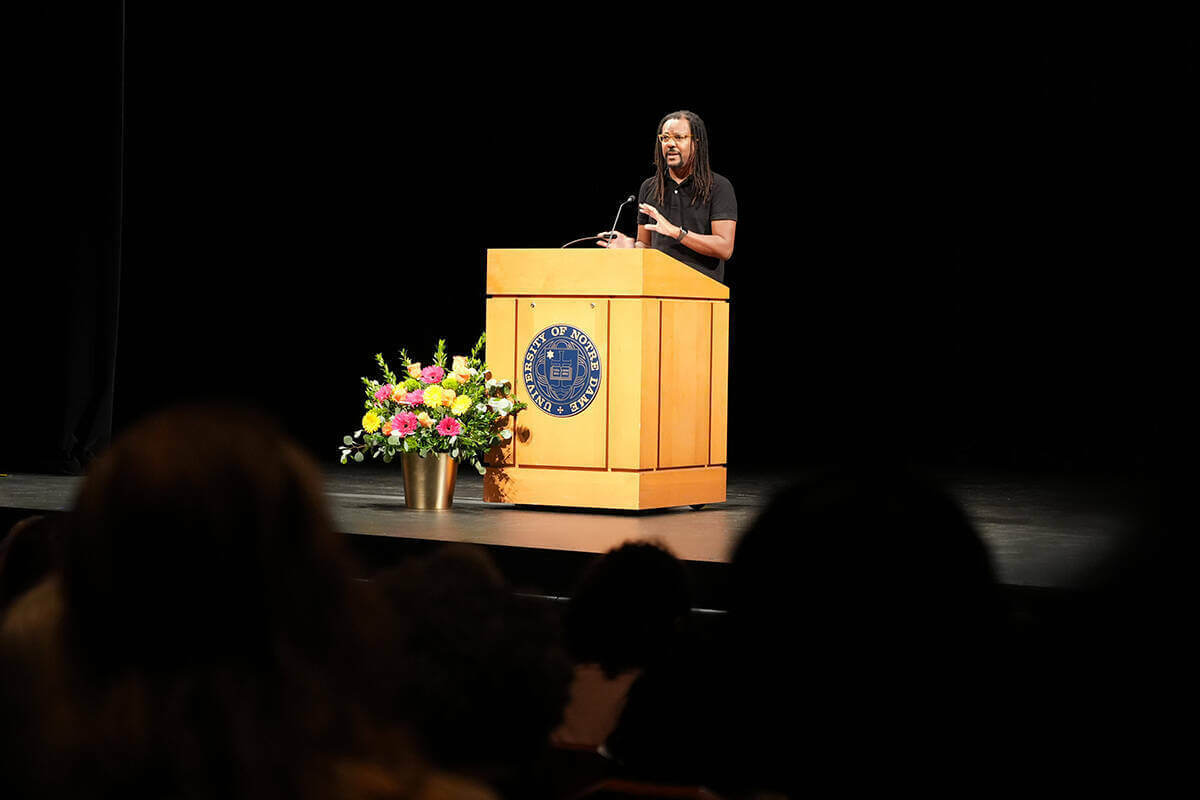
Colson Whitehead is without argument one of America’s great novelists, a writer who sees no point in stemming the flow of his verdant imagination with boundaries of any kind.
A National Book Award laureate, and the only author ever to win two Pulitzer Prizes for fiction with consecutive novels — The Underground Railroad in 2017 and The Nickel Boys in 2020 — Whitehead has made his name by jumping genres from one tale to the next, from speculative to historical fiction, zombie apocalypses to crime stories, satire to straight-up realism.
Along the way he’s freely stretched and blended some literary conventions while inspiring among peers and aspirants the kind of experimentation that generates others. And he doesn’t shy away from painful, sensitive or complicated subjects, like America’s history with slavery or its enduring problems with race, violence, the collective rearing of its troubled children and our persistent tolerance of all manner of injustices, treating these things with deep pathos, a listening heart, deadpan zaniness and honest, relatable, self-effacing humor.
Whitehead delivered the Center for Social Concerns’ Rev. Bernie Clark, CSC, Lecture — an annual event highlighting “justice issues and themes related to the common good” — on October 3, speaking, lip-syncing and at one point even singing to a full house inside the Patricia George Decio Theatre of the DeBartolo Performing Arts Center.
Here’s a sampling of what he had to say.
On being invited to lecture at Notre Dame:
I usually spend Tuesday afternoons weeping over my regrets, so this is a change of pace for me.
Recalling his bookish childhood:
I was born and raised in Manhattan. I was a bit of a shut-in. I would’ve preferred to have been a sickly child, but it didn’t work out that way. I always like when you read a biography of someone like James Joyce and it says he was a sickly child and forced to retreat into a world of imagination. It always sounded so wonderful to me. Instead, I just didn’t like going outside. Other kids left their houses, played in the great outdoors. I liked to hang around inside watching The Twilight Zone, The Outer Limits. I read a lot of comic books and science fiction, and I adored Stephen King, and it seemed when I was in sixth or seventh grade, that being a writer could be a great gig. . . . You could work from home. You didn’t have to wear clothes or talk to people, and you could just make up stuff all day.
What he learned studying English and comparative literature at Harvard:
I wanted to write the Black Shining or the Black ’Salem’s Lot — basically if you took any Stephen King title and put “The Black” [in front of it] that’s what I wanted to do. And then freshman year, I started reading the canon and the so-called highbrow stuff, and I liked the equivalency that I saw between science fiction and fantasy literature and say, magic realism in Gabriel García Márquez, the absurd landscapes of Beckett, the mythology of Borges. They played with the fantastic as much as the genre writers that I grew up adoring. . . .
From my first exposure to someone like Samuel Beckett, I found him to be a form of high realism: A guy is buried up to his neck in sand and can’t move. He has an itch on his leg. He can’t scratch. That sounded like Monday morning to me.
On handling rejection:
I think it was good training for being a writer, because when you write, no one wants to read your crap and everyone hates you. And if you internalize that hatred early, you’re prepared for when you go out into the world.

On getting ideas from dreams, childhood misunderstandings and “all sorts of places”:
The Intuitionist, my first book, I got from watching Dateline. . . . They made a special on the hidden dangers of escalators. Apparently over years the tread can detach, and if you have tiny feet or you’re a child, you might lose a toe. And they interviewed an escalator inspector. I thought, that’s a weird job, but somebody has to do it. . . . And I thought, oh, wouldn’t it be weird if an elevator inspector had to solve a criminal case? . . .
So I went to the library to see what kind of skills an elevator inspector would bring to a criminal case. And the answer was none, because they’re elevator inspectors. So it became all the elevators in a world where elevator inspectors are really important.
And the origin story of his peak critical and commercial success, The Underground Railroad?
I remembered how when I was younger, I thought that it was a real train and the word was so evocative, and my teacher explained how it actually worked. But I thought — that day — wouldn’t that be a cool idea for a book? I know I’m not alone. I’m thinking that I met a lot of people who sort of thought it was a real train. . . .
This seems like a cool idea . . . the element that each state our protagonist goes through will be like a different state of America. Like Gulliver’s Travels. A white supremacist state, a Black utopian state. In a way like Ulysses or . . . the Odyssey or Pilgrim’s Progress, that the hero or heroine has to solve a series of allegorical adventures before they can progress. And it seemed like such a good idea, that I knew if I tried it back then I would’ve screwed it up. I thought I wasn’t a good enough writer. I thought if I had more experience, I’d . . . be able to pull it off in a technical sense. If I was more mature, I might be able to pull it off. If I saw the world, had some Hemingwayesque adventures, stabbed a hobo with a penknife, I could bring all these different things to the book and make it live on the page.
So, each time I finished a book, I would put my notes out and ask myself, am I ready? And the answer was always no. Until 2014. And I was working on a book, and I was having some doubts; I’d already sold it to my editor. So I decided to tell my wife about this underground railroad idea I’ve had for so many years . . . you know, sometimes in marriage you have to make conversation and fill the silences.
So I told her that. She said, "Well, honey, I don’t want to say that the book you’re working on now, about a Brooklyn writer going through a midlife crisis is dumb per se, but this other book sounds really good."
On researching The Nickel Boys, set in 1964 and based on a historical Florida boys’ reform school, in the era of social media:
All the survivors who were telling their stories were white, but the campus itself was predominantly Black. And I wanted to know what kind of stories the Black side of campus were telling.
I keep mentioning the summer of 2014, which was a big summer, the summer that Michael Brown, an unarmed teenager, was shot to death in Ferguson, Missouri. Eric Garner was choked to death by a policeman in Staten Island. And with the rise of cell phones, everyday acts of violence against Black people were being recorded. But the devices weren’t picking up a sudden spike in incidents. They really recorded the standard level of brutality. We had the technology to see it now — the things that happen every day — the way a new telescope doesn’t discover new galaxies, it just renders visible the ancient ones that have always been there on scene.
John Nagy is managing editor of this magazine.